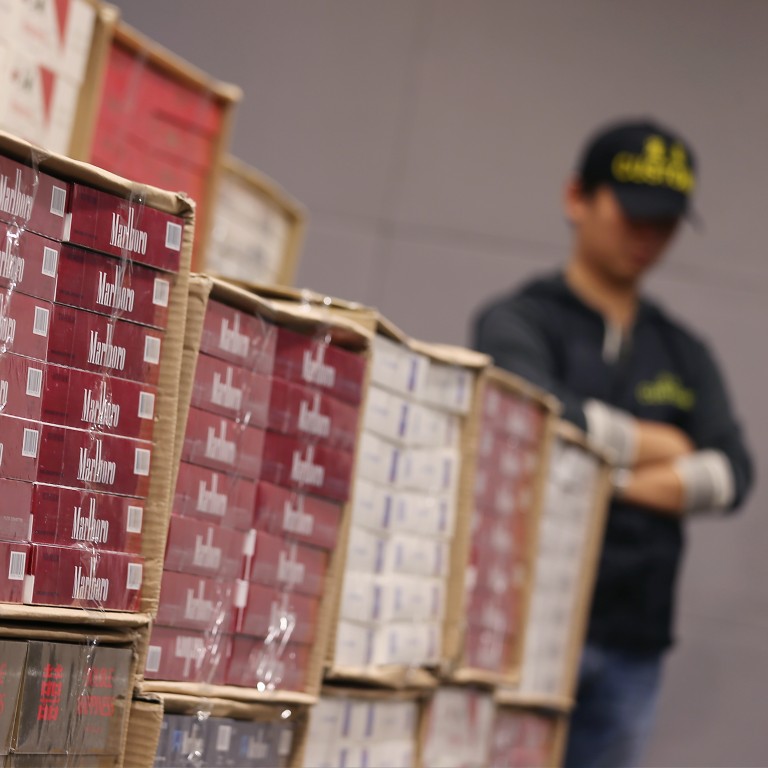
Up in smoke: illicit cigarette trade cost Hong Kong government HK$2.5b in lost tax revenues last year, study reveals
One in every four cigarettes smoked in Hong Kong last year was illicit, costing the government HK$2.5 billion lost in tax revenues, according to study released on Wednesday.
The “Asia-16” study, conducted by UK-based Oxford Economics and funded by tobacco giant Philip Morris, shows 1.3 billion, or 28 per cent, of cigarettes consumed were illicit. Despite a 5.6 per cent point drop compared to 2013, Hong Kong ranks fourth in illicit cigarette trading out of 16 Asia-Pacific markets studied, behind Brunei, Macau, and Malaysia.
Adrian Cooper, chief executive officer of Oxford Economics, said the city had a “significant problem” with illicit cigarettes. “[It’s] driven in part by the substantial retail price gaps with neighbouring countries that were exacerbated by tax rises in 2009 and 2011,” he said, adding that the price difference created a huge incentive for cross-border trade of cigarettes.
According to the report, the price of the most-sold brand in Hong Kong last year was US$7.1 per pack of 20, significantly higher than US$1.1 in China, US$3.8 in Macau, and US$3.0 in Taiwan.
In 2014, excise taxes were raised by 11.7 per cent, which brought up the retail price of the most-sold brand by 10 per cent.
Concern groups called for stronger action against organised smuggling gangs and syndicates.
“Hong Kong’s serious illicit tobacco problem is dominated by cross-border organised crime groups that use the proceeds to finance other criminal activities,” said Jeff Herbert, adviser to the advocacy organisation Hong Kong United Against Illicit Trade (HKUAIT) and a former senior superintendent with the Hong Kong police force. “[The government] needs to get a lot tougher with such organised crime syndicates.”
Herbert suggested three main solutions: use the Organised and Serious Crimes Ordinance as an effective means to seek heavier penalties, freeze assets of organised criminals, and confiscate their crime proceeds; run more public education campaigns; and introduce a balanced excise policy with regular but moderate tax increases in pace with inflation.
Herbert also warned against excessive tax increases as he believed that would only push more smokers to consume illicit cigarettes.
The HKUAIT admitted being sponsored by tobacco companies but added that their group’s focus is not only on the cigarette trade.
